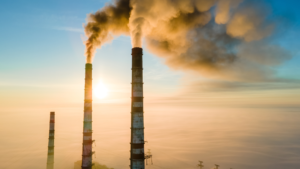 On August 1st, the Prime Minister inaugurated the first waste-to-energy (WTE) plant of Maharashtra in the Pimpri Chinchwad Municipal Corporation (PCMC). It was developed at a cost of approximately Rs 300 crores and will consume approximately 2.5 lakh MT of trash yearly to generate about 14 MW of power daily. It is interesting to note that Antony Lara renewable energy Pvt Ltd, which set up the WTE, received a loan of about JPY 2.6 billion or approx 150 crore INR in March 2023 from Japan Bank for International Cooperation (JBIC). The funding announcement further read that JBIC supports the Government of India’s initiatives such as Swachh Bharat Mission that contribute toward global environmental preservation with the loan.
On August 1st, the Prime Minister inaugurated the first waste-to-energy (WTE) plant of Maharashtra in the Pimpri Chinchwad Municipal Corporation (PCMC). It was developed at a cost of approximately Rs 300 crores and will consume approximately 2.5 lakh MT of trash yearly to generate about 14 MW of power daily. It is interesting to note that Antony Lara renewable energy Pvt Ltd, which set up the WTE, received a loan of about JPY 2.6 billion or approx 150 crore INR in March 2023 from Japan Bank for International Cooperation (JBIC). The funding announcement further read that JBIC supports the Government of India’s initiatives such as Swachh Bharat Mission that contribute toward global environmental preservation with the loan.
Similarly on August 21, JBIC gave a loan of JPY 1.85 billion or 105 crore INR to KPC Gas Power Corporation Ltd, a wholly owned subsidiary of Karnataka Power Corporation Limited to set up a WTE in Bangalore to produce about 11.5 MW of electricity by burning about 600 tons of garbage.
On closer examination, it can be found that JBIC was giving loans to support the overseas business expansion of its Japanese company, Hitachi Zosen, which secured the contracts for several WTE plants in India. Also, further to its advantage, Japan dispatched these loans through local currency denominated financing (Yuan). This is not a lone trend in India and several waste-to-energy projects recently constructed, being built or planned in the Philippines, Indonesia, Thailand and other South and South East Asian countries often involve Japanese companies. Facing saturated home markets, increasing concerns about pollution and climate impact, these Japanese WTE companies are exporting their toxic technology to the Global South.
Centre for Financial Accountability is now on Telegram. Click here to join our Telegram channel and stay tuned to the latest updates and insights on the economy and finance.

